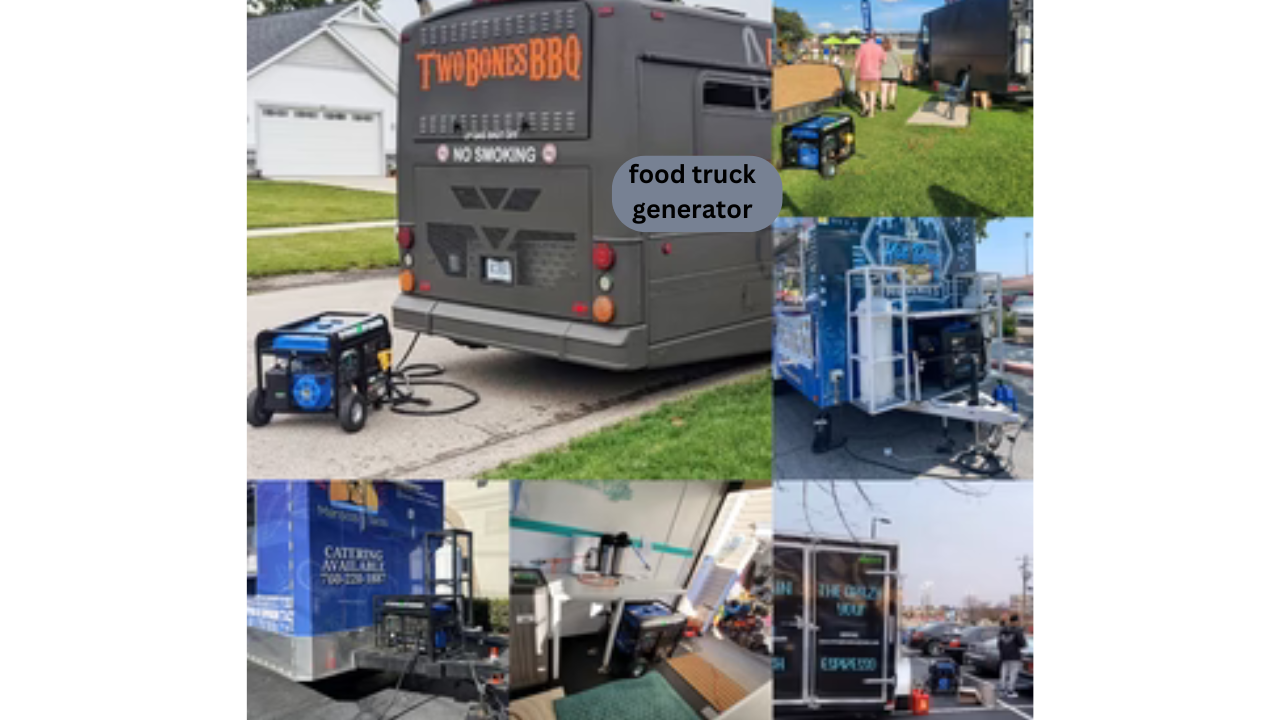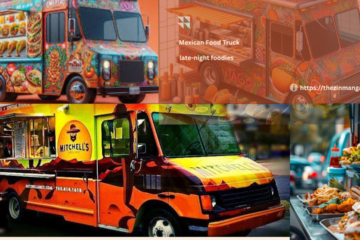Introduction
Food trucks have become a popular way to bring delicious cuisine directly to customers, offering a unique and convenient dining experience. However, to keep the wheels turning and the food sizzling, a reliable power source is essential. This is where a food truck generator comes into play. In this article, we’ll dive deep into everything you need to know about food truck generators—why they’re important, what to look for, and how to choose the best one for your needs.
Understanding Food Truck Generators
What is a Food Truck Generator?
A food truck generator is a portable power source designed to provide electricity for various operations within a food truck. These generators ensure that your kitchen equipment, lighting, and climate control systems remain functional while you’re on the go.
Types of Generators Used in Food Trucks
Portable Generators
Portable generators are a popular choice for food trucks due to their flexibility and ease of use. They can be moved around and are often ideal for small to medium-sized operations.
Inverter Generators
Inverter generators are known for their quiet operation and stable power supply, making them suitable for sensitive electronic equipment and reducing noise pollution in crowded areas.
Built-in Generators
Built-in generators are integrated into the food truck’s design, offering a more permanent solution. They’re usually more powerful but can be more expensive and require professional installation.
Why a Reliable Generator is Crucial for Food Trucks
Powering Kitchen Equipment
Food trucks rely on various kitchen appliances such as refrigerators, grills, and fryers. A reliable generator ensures that all your equipment operates smoothly, preventing downtime and maintaining food quality.
Ensuring Food Safety
Maintaining the correct temperature for perishable items is crucial for food safety. A generator provides the necessary power to keep refrigeration units running, safeguarding your customers’ health.
Supporting Lighting and Climate Control
Proper lighting and climate control are essential for creating a comfortable and inviting atmosphere. A generator powers lights, air conditioning, and heating systems, enhancing the customer experience.
Maintaining Overall Efficiency
A dependable generator helps keep all aspects of your food truck running efficiently, from cooking and refrigeration to customer service and operations.
Key Features to Look for in a Food Truck Generator
Power Output and Wattage
The generator’s power output determines its ability to handle the load of your equipment. Ensure the generator you choose can handle the total wattage required by your food truck’s appliances.
Fuel Type and Efficiency
Generators come in various fuel types, including gasoline, diesel, and propane. Consider the fuel efficiency and availability when choosing a generator, as well as the environmental impact.
Noise Levels
Noise can be a significant factor, especially in busy urban areas. Look for generators with low decibel levels to minimize disturbance and comply with local noise regulations.
Size and Portability
The size of the generator should fit your food truck’s space constraints. Portability is also important if you need to move the generator for maintenance or storage.
Durability and Build Quality
Food trucks are subject to constant movement and varying weather conditions. Choose a generator built with high-quality materials to withstand these challenges and provide reliable performance.
How to Choose the Right Generator for Your Food Truck
Assessing Your Power Needs
Calculate the total wattage required for all your food truck equipment. This will help you determine the appropriate generator size and ensure you have enough power to run everything smoothly.
Considering the Type of Food Truck Operation
Different food truck operations may have different power needs. For example, a truck serving hot food might require more power than one selling drinks or snacks. Tailor your generator choice to your specific operation.
Budgeting for Your Generator
Consider both the initial cost and long-term investment. While higher-end models may have a higher upfront cost, they can offer better performance and lower maintenance costs over time.
Comparing Different Models and Brands
Research various models and brands to find one that fits your needs and budget. Read reviews, compare features, and check for warranties to make an informed decision.
Installation and Maintenance Tips
Proper Installation Procedures
Follow the manufacturer’s installation guidelines to ensure safe and effective operation. If you’re unsure, consider hiring a professional to handle the installation.
Regular Maintenance Practices
Regular maintenance is crucial for extending the life of your generator. This includes routine checks, oil changes, and filter replacements.
Troubleshooting Common Issues
Familiarize yourself with common generator issues and troubleshooting steps. This will help you quickly address any problems that arise during operation.
Top Generators for Food Trucks in 2024
Generator 1: Features, Pros, and Cons
Features: Reliable power output, low noise levels, fuel-efficient
Pros: Quiet operation, easy to maintain
Cons: Higher initial cost
Generator 2: Features, Pros, and Cons
Features: Compact size, affordable, easy to transport
Pros: Budget-friendly, portable
Cons: Limited power output
Generator 3: Features, Pros, and Cons
Features: High power output, durable build, versatile fuel options
Pros: Strong performance, long-lasting
Cons: Larger size, more expensive
Cost Considerations and Budgeting
Initial Cost vs. Long-term Investment
While the initial cost of a generator can be significant, it’s important to consider the long-term benefits. A high-quality generator can save you money on repairs and replacements in the future.
Cost of Maintenance and Repairs
Factor in the ongoing costs of maintenance and potential repairs. Regular upkeep can prevent costly breakdowns and extend the life of your generator.
How to Find the Best Deals
Look for sales, discounts, and special offers when purchasing a generator. Research different suppliers and consider buying from reputable brands to ensure you get a good deal.
Safety Tips for Using Generators in Food Trucks
Safe Operation Practices
Always operate your generator according to the manufacturer’s instructions. Keep it in a well-ventilated area and never use it indoors.
Emergency Procedures
Have a plan in place for emergency situations. This includes knowing how to shut down the generator quickly and safely if needed.
Compliance with Regulations
Ensure your generator complies with local regulations and safety standards. This helps avoid fines and ensures the safety of your operation.
Conclusion
Choosing the right generator for your food truck is crucial for maintaining smooth operations and ensuring customer satisfaction. By considering factors like power output, fuel type, and noise levels, you can find a generator that meets your needs and budget. Regular maintenance and proper use will keep your generator running efficiently, allowing you to focus on delivering delicious food and a great experience to your customers.
FAQs
What size generator do I need for a food truck?
The size of the generator depends on the total wattage required by your food truck’s equipment. Calculate the power needs of all your appliances to determine the appropriate size.
How often should I service my food truck generator?
Regular maintenance is crucial for generator longevity. Typically, you should service your generator every 100-150 hours of use or according to the manufacturer’s recommendations.
Can I use a regular home generator for a food truck?
While you can use a home generator, it may not be optimized for the demands of a food truck. It’s better to choose a generator designed specifically for mobile use.
What are the best brands for food truck generators?
Some top brands for food truck generators include Honda, Yamaha, and Generac. Research different models and brands to find the one that best fits your needs.
How can I reduce the noise from my food truck generator?
Choose a generator with low noise levels, and consider using soundproofing materials or enclosures to further reduce noise. Proper placement and maintenance can also help minimize noise.
You can see latest updates on: Zinmanga



